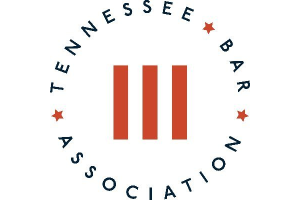for Workers
Workplace Sexual Harassment FAQs
Sexual harassment in the legal sense means you are enduring misconduct in the workplace that is (1) unwelcome; (2) based on your sex; and (3) is so severe or pervasive that it interferes with your job performance. If you can establish these elements, then your employer may be held legally responsible for the actions of the harasser. Sexual harassment may include requests for sexual favors, physical touching, or frequent comments about your appearance.
Our sexual harassment lawyers in Nashville exclusively practice employment law. If your job suffered after you experienced or reported sexual harassment at work, immediately contact us at the number above or online.
Simple teasing, offhand comments, and infrequent insults are always unacceptable, but alone they usually do not meet the legal definition of sexual harassment. Nevertheless, you should always document and report when this type of misconduct occurs because persistent “teasing” or insults may eventually become legally actionable.
Workplace sexual harassment often includes one or more of the following predatory behaviors:
– Invading of personal space including persistent leering or staring
– Frequent comments about your appearance/attractiveness
– Sexually explicit text messages or e-mails
– Sexual “jokes” or innuendos or “gag” gifts of a sexual nature
– Displaying sexual materials
– Solicitation of explicit pictures
– Repeated requests for a romantic date
– Asking about your sexual history
– Sexual coercion such as threats or pressure for sexual favors
– Criminal sexual conduct including physical assault and rape
– Harassment based on your LGBTQ status
If you are being propositioned, objectified, and humiliated at work because of your sex, then you may be experiencing unlawful sexual harassment. Also, if your job suffered (fired, demoted, schedule changed, pay cut, etc.) because you rebuffed a supervisor’s sexual advances, then you may have a viable claim for sexual harassment under federal and state law.
If you are currently enduring sexual harassment at work, you need to take immediate action to put your employer on notice of the misconduct by following these steps. Before doing so, it is a good idea to discuss your circumstances with an experienced employment attorney who can provide guidance on how to stop the harassment while protecting your job and legal rights.
A. Send a respectful, written complaint. In the complaint, be helpful and professional, offer solutions to the problem, and do not threaten litigation. Sending the complaint via work e-mail is fine but include relevant dates and immediately print off a copy. You want to be calm and reasonable – remember, a jury might see the complaint.
B. Be specific. Narrow down the key facts. Who, what, where, and when. Do not submit an excessively long complaint.
C. Avoid legal conclusions. Do not say “this is illegal harassment.” You can say the same thing with more tact: “I feel like I’m being treated differently because of my sex….” The latter is not a legal conclusion and it is sufficient without being overly aggressive.
D. Send your complaint to the right person. Follow the company’s reporting procedures or if the company does not have a reporting policy use your best judgment (usually human resources, or the owner in small companies). If the harasser is the owner and/or your boss and there is no one to send a complaint to, call a Nashville employment lawyer immediately to discuss your options.
If you were fired after reporting sexual harassment at work, immediately contact a Nashville-based sexual harassment lawyer at the number above or online. For many harassment claims you may have 300 days or less to file a complaint with the EEOC. Do not wait to fight back.
The value of a sexual harassment lawsuit (settlement or jury verdict) varies significantly from case to case depending on several factors, including the severity of the harassment, how much money you have lost in wages and benefits, the type and quality of evidence, whether or not the harassment impacted your physical or mental health, and if the employer has a history of allowing sexual harassment in its workplace.
To know how much your legal claims may be worth, contact a sexual harassment attorney serving Nashville today.
Absolutely. If you are sexually assaulted at work, you are well within your rights to immediately call the police or 911 and file criminal charges against the perpetrator. In addition, your employer may be held accountable in a civil lawsuit for fostering an unsafe work environment that lead up to the assault.
In Tennessee, employees are protected against sexual harassment by Title VII of the Civil Rights Act of 1964 and the Tennessee Human Rights Act, both of which prohibit workplace discrimination based on an employee’s sex.
In Tennessee, the law recognizes two types of sexual harassment claims: (1) Quid Pro Quo and (2) Sex-based Hostile Work Environment. Quid Pro Quo occurs when your job becomes dependent on your acceptance of unwelcome sexual advances from a manager or other boss. For example, being denied a promotion for refusing a supervisor’s sexual advances is unlawful. A sex-based hostile work environment happens when you are subjected to unwelcome sexual advances, touching, or crude sexual language that is severe or pervasive enough to negatively impact your job performance.
In Tennessee, you generally have 300 days from the date of the alleged harassment to pursue federal claims. Depending on how much time has passed since the harassment occurred, you may have very little time remaining before this deadline. If you miss this deadline, you will be barred from pursuing your claims in court.
The first step is to speak with an experienced employment litigator who files sexual harassment claims in court and with the EEOC. You need a lawyer who you trust and who can aggressively take the fight to your employer and the harasser. Contact our experienced Nashville sexual harassment attorneys at the number above or online.














